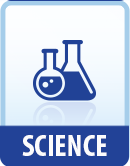|
This section contains 800 words (approx. 3 pages at 300 words per page) |

|
The Krebs cycle is a set of biochemical reactions that occur in the mitochondria. The Krebs cycle is the final common pathway for the oxidation of food molecules such as sugars and fatty acids. It is also the source of intermediates in biosynthetic pathways, providing carbon skeletons for the synthesis of amino acids, nucleotides, and other key molecules in the cell. The Krebs cycle is also known as the citric acid cycle, and the tricarboxylic acid cycle. The Krebs cycle is a cycle because, during its course, it regenerates one of its key reactants.
To enter the Krebs cycle, a food molecule must first be broken into two- carbon fragments known as acetyl groups, which are then joined to the carrier molecule coenzyme A (the A stands for acetylation). Coenzyme A is composed of the RNA nucleotide adenine diphosphate, linked to a pantothenate, linked to a...
|
This section contains 800 words (approx. 3 pages at 300 words per page) |

|


